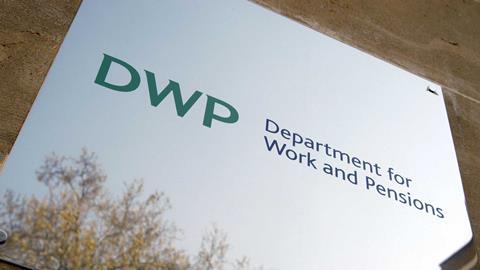Legislation heading to the Lords should open up new possibilities for disabled people who are the beneficiaries of wills.
Receiving an inheritance can be a disappointment for a disabled person. Money from an inheritance or a gift will normally be counted as an asset for means-tested benefits or services.
For a disabled person who receives benefits and services, this can mean that a once-in-a-lifetime opportunity to lead a fuller or more comfortable life makes little difference. The money simply replaces state-funding benefits and services until their fund drops below the excluded capital level, when they go back on to means-tested benefits.
A Vulnerable Beneficiary Trust or Disabled Person’s Trust can be a way of ringfencing the windfall so that means-tested benefits are not affected.
In practice this device is rarely used by will-drafters, as the qualification and drafting requirements of such a trust have, to date, been complex.
We have acted in many cases for the Official Solicitor where a disabled dependant has been excluded from a will, normally on the basis that they will receive no benefit from the testator’s hard-earned money. In such cases we will apply for a variation of the will under the Inheritance (Provision for Family and Dependants) Act 1975.
That variation applies from the date of death and allows for a legacy to be put straight into the trust. Not only do such arrangements ensure that the beneficiary receives real benefit from the legacy, but it strengthens the claim that more than the Department for Work and Pensions (DWP) capital limit should be awarded.
It gets better – not only can such trusts avoid means-testing, but they also avoid the harsh tax regime that now applies to UK trusts.
This includes inheritance tax, which confusingly applies to assets put into trust for the benefit of the living. Inheritance tax can result in substantial tax liabilities becoming due on payments in and out of the trust and periodical charges. In short, where it does apply, it can be very expensive.
The position in relation to capital gains tax (CGT), though, was a disincentive to the use of these trusts. The position is complex, but in the past CGT might be due on the death of the disabled beneficiary. However, the Finance Bill 2014, which is on the cusp of being enacted, is looking to address this problem.
The Finance Act 2014 is to extend sections 72 and 73 of the Taxation of Chargeable Gains Act to include disabled beneficiaries where the beneficiary has no entitlement to the income of the trust. This extension of the CGT ‘uplift’ provisions is long awaited and provides a level playing field in terms of CGT liabilities on the death between these disabled beneficiaries and others.
Setting up such trusts should be done before the person receives the money, otherwise there may be problems with the DWP deprivation of capital rules. The money should be given to the trust not the person.
In the past the benefits of these Vulnerable Beneficiary Trusts have only been available for a few disabled people. They included those claiming Attendance Allowance or receiving middle- or higher-rate care components of Disability Living Allowance (DLA).
However, changes to the benefits regime, whereby DLA is being replaced by Personal Independence Payments (PIP) are underway. It is widely thought that when these changes eventually take effect less people will qualify for benefits.
However, it is proposed that all those receiving PIPs will qualify for these trusts, whereas before lower-rate DLA claimants did not. The Treasury predicts that the change will be revenue neutral. That would be a shame as these trusts do represent an opportunity for lawyers to add value to many private clients’ financial arrangements.
It should be noted that there are other complex qualification rules as to the nature of the trust, in particular how income and capital are dealt with. Trust deeds need to be carefully drawn up to ensure qualification, or substantial liabilities will result.
This is a complicated area of the law but recent and coming changes do open up new possibilities for people with disabilities to really benefit from gifts and legacies.
David Wedgwood is a partner at Anthony Gold Solicitors
Click here to view more articles in our private client section
































2 Readers' comments